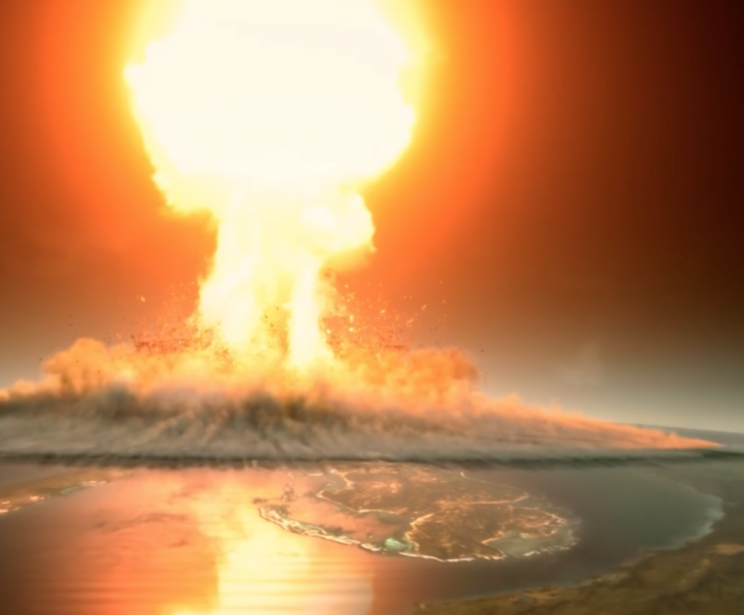There’s a weird new theory about what really killed the dinosaurs

A scientist has fingered a new culprit for the annihilation of the dinosaurs 66 million years ago – our solar system colliding with mysterious, invisible ‘dark matter’.
Dark matter accounts for up to 85% of matter in the universe – but does not emit radiation (such as light), interacting with ordinary matter only via gravity.
Lisa Randall, author of Dark Matter and the Dinosaurs, believes the dinosaurs may have been wiped out as Earth passed through the dark matter in the Milky Way’s disc.
MORE: Britain’s smallest puppy: Tiny Tim the terrier is as tall as a tin of beans
MORE: Only 1 in 4 Britons think the government is prepared for Brexit negotiations
Dark matter might have provided a ‘push’ which hurled a seven-mile-wide rock at our planet, ‘Triggering every disaster scenario except for a zombie apocalypse – acid rain, earthquake, volcanoes, tidal waves, global warming,’ Randall says.
Speaking at the Starmus conference in Norway, she says that our solar system might regularly pass through an invisible ‘plane’ of dark matter in our galaxy.
While dark matter is invisible, it could ‘knock’ asteroids from the very edge of the solar system – sending them on a collision course with our planet.
Randall says, ‘Our solar system bobs up and down through the plane of the Milky Way – and if you look at the crater record for large impact craters, large craters happen periodically.
‘We propose that every time the solar system goes through the plane of the Milky Way, it encounters a plane of dark matter. It pulls stuff from the edge of the solar system.
‘I am talking 50,000 times farther from the sun. The gravitational binding is very weak there – so it doesn’t take much.’
Randall says that the idea is just a theory at present – but the ESA’s new Gaia satellite may actually be able to measure the effect.
Randall says, ‘The gaia satellite launched by the ESA is measuring the position and motion of a billion stars in the Milky Way. You can put this data together to measure gravitational potential – and perhaps measure if there is a dark matter disc.’
But she reassured the audience in Trondheim that the dark matter disc was not about to trigger another mass extinction in the immediate future.
Randall said, ‘Just to be clear, it is not going to happen any time soon. There’s a mass extinction event roughly every 100 million years. Of the things we have to worry about, it’s not an important one.’
Starmus festival, hosted by NTNU, Norway, Trondheim, www.starmus.com. Starmus is the world’s most ambitious science and arts festival with Professor Stephen Hawking as keynote speaker, 11 Nobel laureates and Buzz Aldrin, Oliver Stone, Brian Cox and Neil deGrasse Tyson.

 Yahoo News
Yahoo News 

